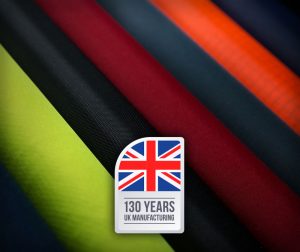 ADLINGTON, England — June17, 2021— Carrington Textiles, a global workwear fabric manufacturer, has survived the ups and downs of the textile industry in the United Kingdom in the last 130 years by constantly adapting to market changes and responding to the needs of customers, wherever they are in the world.
ADLINGTON, England — June17, 2021— Carrington Textiles, a global workwear fabric manufacturer, has survived the ups and downs of the textile industry in the United Kingdom in the last 130 years by constantly adapting to market changes and responding to the needs of customers, wherever they are in the world.
The company’s research and development team has been instrumental in achieving this, by adopting new and innovative ways to approach fabric development.
Kirsty White, Carrington Textiles’ Research & Development manager, explained: “Carrington Textiles understands the importance of R&D in manufacturing and we constantly strive to be innovative so we are always at the forefront of fabric development, but we also want to make sure we get it right and we put the product through its paces to guarantee the best results.”
Collaboration is one of the biggest elements of the company’s research and development strategies, and over the years more and more partners have been added to the mix to make sure the development process is more efficient.
Carrington Textiles’ research & development processes have become much more collaborative in their approach over the years, by working closely with the whole supply chain involved, including fiber producers, spinners and weavers, their manufacturing sites and customers.
“Fiber producers have the technical expertise on their specific technology, spinners and weavers have the experience in textile construction and our manufacturing sites have know-how in terms of equipment and what’s feasible to process. Customer involvement is vital for us to guarantee that our fabric development is something the market needs and is looking for,” White added.
But R&D in manufacturing is not only important to be able to stay at the forefront of innovation, but also to use processes that are gentle with the environment and to develop fabrics that are sustainable.
Circular manufacturing is a topic the company is currently focusing on. Taking part in a number of projects collectively with universities, partners and competitors, Carrington Textiles is working to make sure the end product is reusable in some way, therefore reducing our impact on the environment.
The use of innovative fibers that reduce microplastic pollution in oceans and textile accumulation in landfills, as well as chemistry that is environmentally friendly, are some of the most recent technologies the company has been successfully trialing for their products.
Part of the textile manufacturer’s Balance Range of sustainable fabrics, Hawksbill and Orca — due to be launched in the coming months — incorporate CiCLO technology, a sustainable textiles ingredient in the form of an additive that is combined with polyester at the very beginning of the fibre making process. When CiCLO Polyester ends up in the environment either through washing or end of life of the garment, it behaves like natural fibers, in turn reducing microplastic pollution and textile accumulation.
The expansion of the company’s stretch range and the introduction of lighter, yet durable fabrics are also a key focus for Carrington Textiles’ research and development strategy.
Posted June 17, 2021
Source: Carrington Textiles Ltd.




